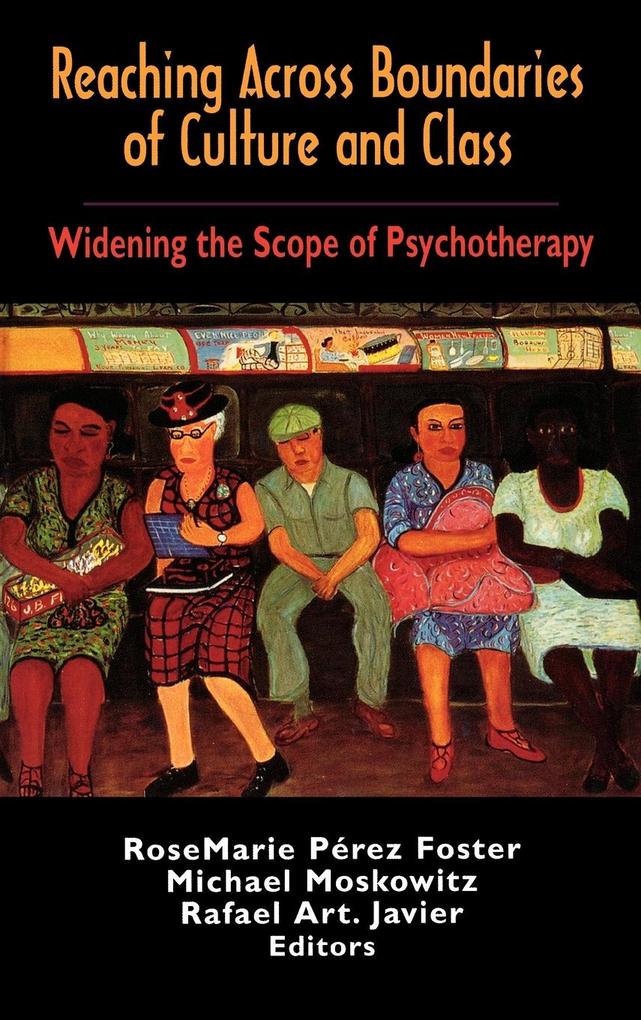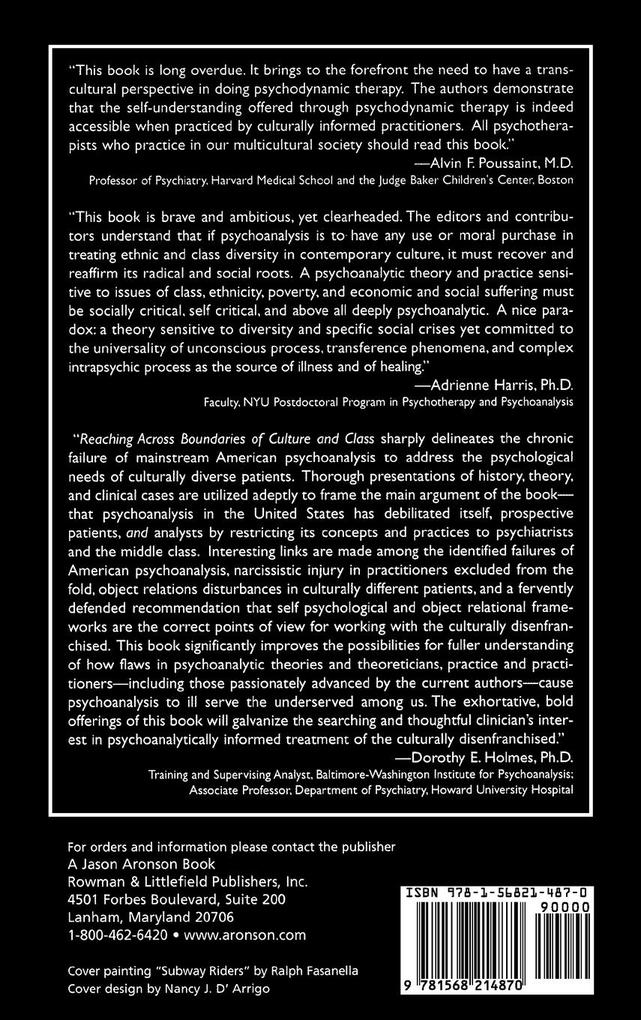This book is long overdue. It brings to the forefront the need to have a transcultural perspective in doing psychodynamic therapy. The authors demonstrate that the self-understanding offered through psychodynamic therapy is indeed accessible when practiced by culturally informed practitioners. All psychotherapists who practice in our multicultural society should read this book. -- Alvin F. Poussaint, M.D., Harvard Medical School This book is brave and ambitious, yet clearheaded. The editors and contributors understand that if psychoanalysis is to have any use or moral purchase in treating ethnic and class diversity in contemporary culture, it must recover and reaffirm its radical and social roots. A psychoanalytic theory and practice sensitive to issues of class, ethnicity, poverty, and economic and social suffering must be socially critical, self critical, and above all deeply psychoanalytic. A nice paradox: a theory sensitive to diversity and specific social crises yet committed to the universality of unconscious process, transference phenomena, and complex intrapsychic process as the source of illness and of healing. -- Adrienne Harris, Ph.D., NYU Postdoctoral Program in Psychotherapy and Psychoanalysis This book usefully highlights class and cultural dimensions, too often neglected in our literature, if not in our best practice. It has value as a significant extension of an inherently contextual methodology, neither revisionist nor necessarily inimical to its scientific aim. Psychoanalytic Books: A Quarterly Journal Of Reviews











